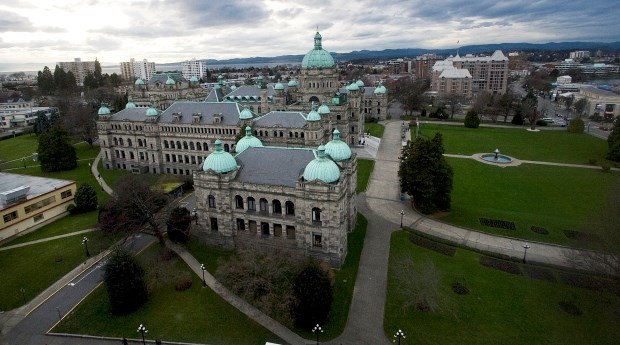B.C.’s New Democrat government hopes that the minority result in the federal election might mean more provincial funding for child care and public transportation.
The finance minister and deputy premier, Carole James, said Prime Minister Justin Trudeau might need the support of the federal NDP’s 24 seats to enact his agenda, which could pay dividends for B.C.
“I think we also have an opportunity if the governing party is going to work together with New Democrats, we know the values of child care and we know the values of green transportation and the opportunities that provides for us to address our issues around climate are commonalities there,” James said on Tuesday.
“My hope is it provides us the opportunity to see our values also reflected at the federal level.”
B.C. is specifically looking for federal funding for the Massey tunnel replacement project, and would likely welcome increased money to extend the SkyTrain system in Surrey. The provincial NDP’s plan to eventually launch $10-a-day child care also requires federal financial support.
B.C. continues to oppose the expansion of the Trans Mountain pipeline from Alberta to Burnaby. The federal Liberals purchased the pipeline to ensure its completion. But the federal NDP opposes its construction, raising questions about the future of the project.
“I don’t know that it will have any impact on TMX,” B.C. Environment Minister George Heyman said Tuesday.
“I think the Liberals have made it clear they own it, they want to proceed. As a government in B.C. we intend to do everything we can to ensure that within the law and within our jurisdiction, we protect B.C.’s interests in both the environment and economy by insisting on the strictest possible protections to protect against a catastrophic oil spill. We’ll be insisting on that.”
Heyman said B.C. will continue its legal challenges. But as to whether he would co-ordinate with the federal NDP on a strategy, Heyman said that is more likely a conversation to be had between Premier John Horgan and federal NDP Leader Jagmeet Singh.
Heyman also said he does not see any change for the $40-billion LNG Canada project near Kitimat, which the provincial NDP supports. The federal NDP began the campaign opposing LNG, but later muted its criticism to try to find some common ground with the B.C. NDP.
“I don’t see any change in that,” said Heyman. “I think Mr. Singh has said he sees a long-term future moving away from fossil fuels. I think all people concerned about climate see that. In the short term, LNG Canada has been approved — it fits within Clean B.C. — and it is currently being constructed.”
The federal parties will now begin backroom negotiations to try to find alliances and votes that could help them enact their agendas. Those behind-the-scenes discussions share some limited similarities to B.C.’s political landscape after the 2017 provincial election returned a minority Liberal government that was later toppled by an NDP-Green alliance.
Horgan has warned federal politicians that their enemies on the campaign trail might end up becoming their allies in the postelection landscape, and they should try not to burn any bridges.
James, who helped negotiate the NDP-Green confidence-and-supply agreement, said B.C.’s example shows that minority governments can work.
“Good communication is critical,” said James, who added it will take time to establish that dialogue. “But I think we’ve proven it can be a success and I think the public is keen on having parties work together. I think we’ve shown that can happen.
“It will take some time.”



